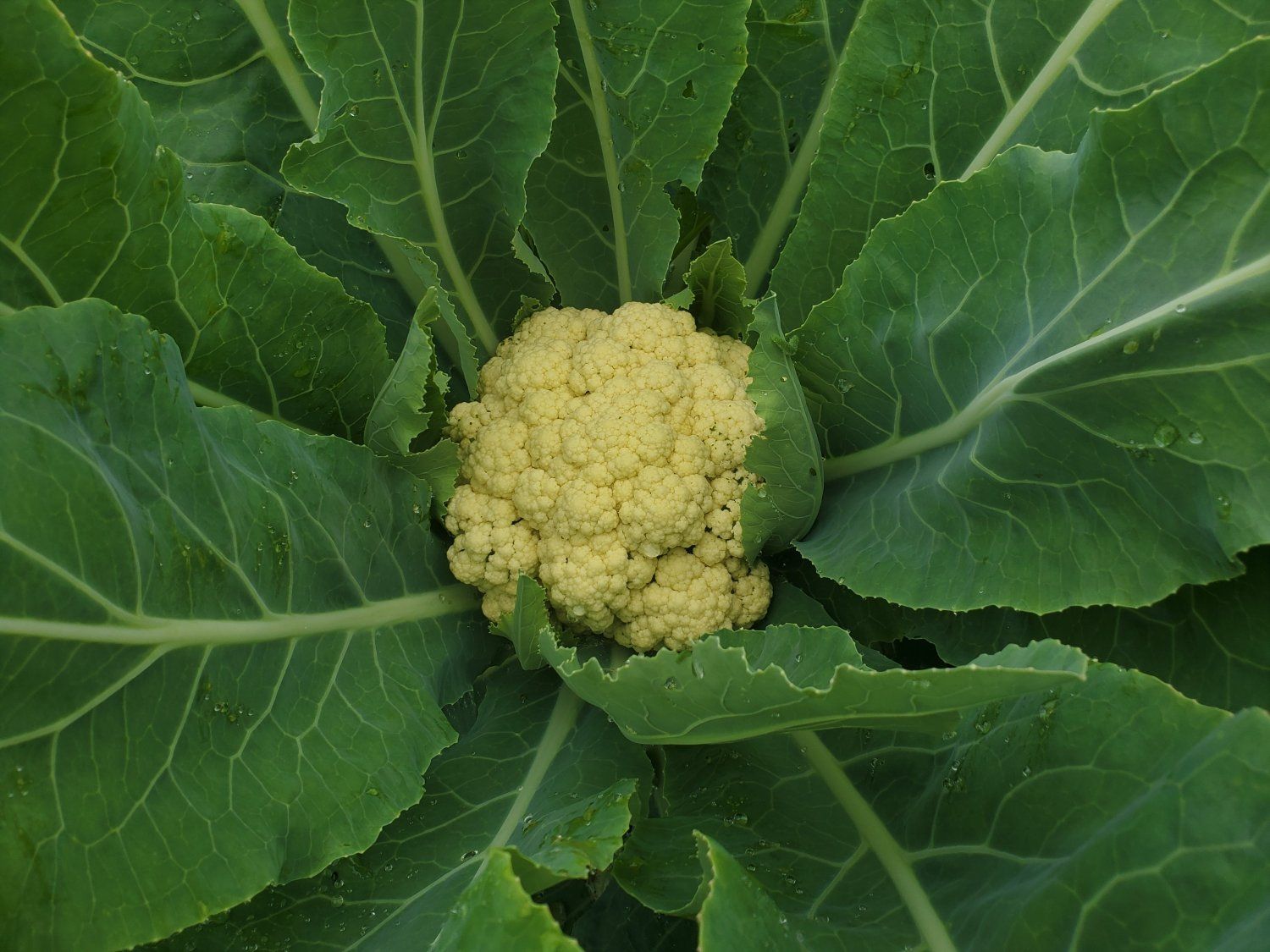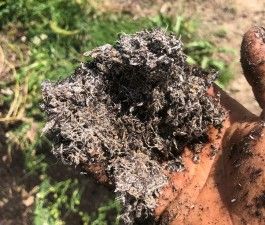July 22, 2021
The Lettuce Rejoice!
Firmly Rooted Farm's Newsletter for their Veggie Loving Farm-ily

On the Farm: Fungi; the Good, the Bad, and the Ugly
Hello again my veggie loving friends,
Well, I’ve been griping on all season about how much we need the rain, now I’m going to gripe on about how wet and grey it’s been. One just cannot seem to win when it comes to the weather and farming, the balance of life requires an upside and downside for every event. In this case, the wet conditions have created the perfect environment for fungi, which can be good, bad, and ugly.
First the bad and ugly, since it is often more appealing to end with the good. Some fungi are pathogenic, therefore increased fungal growth often results in compromised crop health. Disease needs three factors to exist: a pathogen, a susceptible host, and proper environmental conditions. Pathogens are always present, but a stressed plant provides a susceptible host, and the increased rainfall has provided the proper environmental conditions for fungal disease. These environmental conditions in turn have increased stress on the plants. This week we’ve noticed that our green beans have some early indicators of fungal activity, the oldest leaves on our romaine and cilantro are spotty with fungal disease and need to be peeled away, and the veins of some of our lettuces are compromised by fungal growth as well. Most crops are susceptible to some fungal growth. Our more sensitive crops are grown in the greenhouse to avoid these issues by controlling the environmental conditions and decreasing the susceptibility of the host. For example, tomatoes are highly susceptible to blight (which can be caused by a variety of pathogenic organisms, such as mildew) and botrytis (aka grey mould). Both diseases can occur in controlled environments such as greenhouses, but the risk is minimalized by providing ventilation and ensuring optimized crop health. There are farmers who grow their tomatoes outside, only to lose the entire crop to disease in a wet year, resulting in lost income and of course tragic heartbreak.
Although there are certified organic treatments, we have never sprayed with fungicides. This is because the most popularly used fungicide in organic agriculture, copper sulfate, accumulates in the soil, thus over time causing possible harm to crops and wildlife. Instead, we rely on management techniques, such as thoughtful crop rotations and nutrient management strategies, to minimize the risk of fungal activity. However, as mentioned earlier, when it stays wet, fungi come out to play.
This is not all bad, there are some very positive upsides to increased fungal activity. You may have heard of the mycorrhizal network or read about it in our newsletter “To Till or Not to Till”. We try our best to keep the soil intact in order to promote the growth of mycorrhizal fungi, and the wet conditions aid us in that endeavour. Mycorrhizal fungi are found in all major ecosystems and contribute 5-36% of all total biomass in the soil. These fungi exist in a symbiotic relationship with as many as 92% of plant families, accounting for roughly 80% of all plant species. In the feature photo for this week, you can see mycelium growing abundantly in some compost we've spread on the fields. Essentially acting as an extension of the roots of the plant, mycorrhizal fungi provide the plant with water and nutrients. By their very nature, mycorrhizal fungi also alleviate soil compaction, prevent erosion, and protect against pathogens, heavy metals, high salt levels, and high temperatures. In exchange, the plant provides fungi with carbohydrates and essential lipids, which in turn assist in the nutrient transporting capacity of the fungi. Mycorrhizal fungi need plants in order to live, and although plants don't need mycorrhizal fungi, they are certainly better off for it.
I count myself as a bit of a fungi aficionado. I enjoy hunting for edible mushrooms as a pastime. The wonderful world of fungi is fascinating, and still much of a mystery to scientists and farmers alike, leaving mushroom for exploration and learning. I couldn’t resist sneaking in at least one pun!
Kitchen Corner

This is the season of preserving the harvest bounty for the coming winter. Our peas are on the way out and beans are not far behind, which can be easily frozen or pickled for storage. We also seem to have found ourselves swimming in beets. The recipe I have shared with you is an easy and delicious quick pickle for beets, which you can store in your fridge for up to 2 weeks. However, it has the proper acidity to be adapted as a canning recipe, just follow the link here for clear instructions. If you really love beets (as I do), enjoy them roasted and topped with a little goat cheese, add the greens to your smoothies, or if you’re truly feeling bold, try making a fermented beet juice drink called Kvass. Kvass is a Slavic drink traditionally made from stale rye bread, but the process can be applied to beets to create a nourishing fermented beverage. Find a recipe here!
Also a note: we picked up our first new potatoes for your shares. You may recall that we've decided outsource potatoes to a farm that is simply better at growing them. These are BEAUTIES and we can barely wait to cook some up for ourselves. The farmers growing them for us have returned to the area after some time potato farming on the east coast. They are growing on certified organic land, using organic and biodynamic practises. Their farm was certified organic out east. The crops themselves are not yet certified, as the farm has not yet undergone their annual inspection. This will be complete soon.
Kitchen Clean-Up
Just a reminder to set an alarm in your phones to pick up your shares! There have been a number of shares forgotten at various locations, and reminders are incredibly useful.
That’s all for now folks, happy eating until next time!
Farmer Erika




